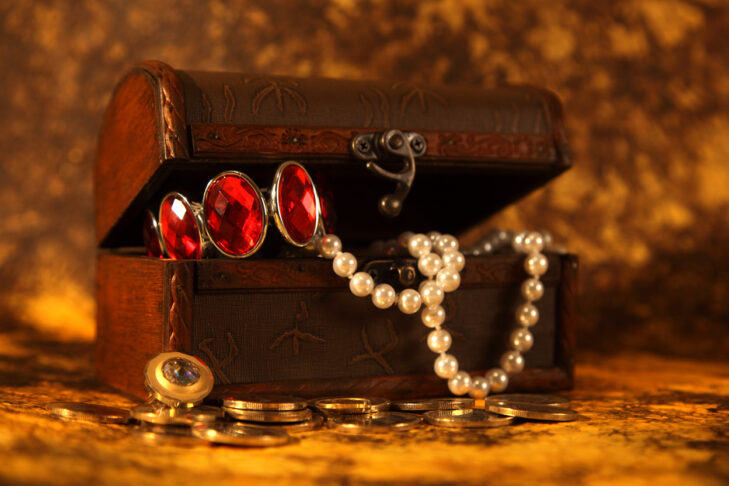In the middle of packing for my recent journey into the wilderness of Northampton, I was asked to participate in my temple’s (Temple Aliyah in Needham) Shavuot story slam. Never one to pass up a chance to talk, of course, I said yes.
In preparing for my three minutes of fame, this year, the one aspect of the Exodus story that captured my attention was how on earth did the Hebrews pack so quickly? Heck, they only had 18 minutes to bake bread; how did they pack the other items they might need, like extra sandals, for example, or underwear or tunics? Then as they are leaving, the Egyptians showered them with jewelry and precious items.
Why? For the Hebrews, the reason was that God promised it to them (“I [God] will execute judgment on the nation they shall serve, and in the end, they shall go free with great wealth (Bereshit 15:14)).
Slaves leaving with great wealth? How could that be? Did they “borrow” the wealth, or did they just take it?
There are several interpretations. One is that the Hebrews demanded it. Supposedly, during the plague of darkness, the Hebrews were able to see, so they did reconnaissance and knew exactly what level of wealth the Egyptians had.
It’s suspicious enough to me to think that the money could be considered stolen, but described as “borrowed” to make it seem less criminal.
Some consider these reparations. The Hebrews had been slaves for over 200 years and this windfall of riches was their overdue payback. The idea that the Hebrews used reparations to rationalize the windfall is something to consider as we confront the concept of reparations for slavery.
Today, I think the Egyptians offered their wealth as blood money. They had just lost their first child and maybe the riches were the Egyptians’ way of saying, “Enough of this. No more blood. Take what you want and just leave!”
I think this raises some disturbing possibilities. Maybe this was dirty money. Maybe its presence enabled the Golden Calf incident. In that case, the calf’s destruction was one more way the Hebrews could leave Egypt behind.
However, the Hebrews would soon contribute more jewels and precious objects for the creation of the Mishkan. Rather than the calf, these precious items were to be transferred into the Mishkan, a sanctuary for the true God that had freed them from bondage and would lead them to the promised land. In this case, giving up this Egyptian wealth could have been another way to purge themselves of the Egyptian in their souls.
Would the Mishkan have been any less beautiful if there was no wealth, if all people could contribute was some shmatahs (rags) they packed for the journey? I like to think that God would still have found that beautiful for the very fact that everyone in the community contributed to it.
Whether it was reparations, stolen money or a good-riddance gift, the Egyptian treasures provided a financial foundation for the soon-to-be homeland. But I like to imagine the Hebrews make the Promised Land a light unto nations, a place in which the holiness of a stick or flower is held in higher esteem than that of diamonds and rubies of questionable origin.
In a time of growing income inequality, a moment when communities are grappling with the idea of reparations in racial justice, and a period when nonprofit institutions are forced to question the source of many major donations, this was my Shavuot revelation.
This post has been contributed by a third party. The opinions, facts and any media content are presented solely by the author, and JewishBoston assumes no responsibility for them. Want to add your voice to the conversation? Publish your own post here. MORE



